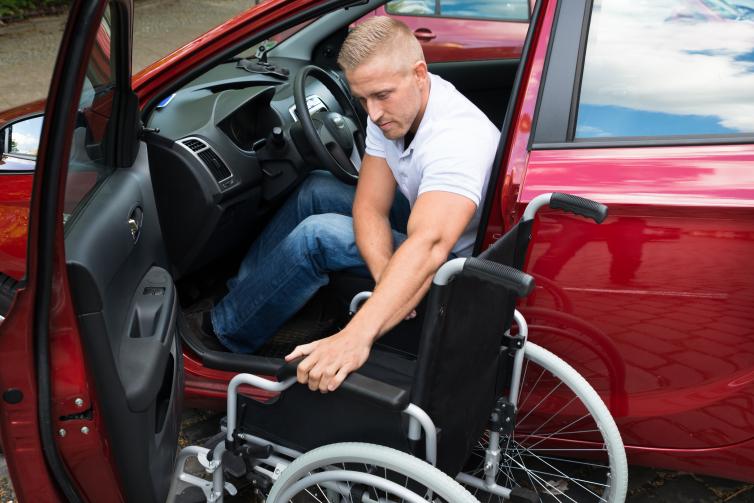Contact our team for more information about how we help Charities, Community Interest Companies, Co-operative Societies and Community Benefit Societies.
Research Institute for Disabled Consumers, (RiDC), in partnership with Energy Systems Catapult, was awarded £243,713 for their Enabling Inclusive Innovation and Sustainable Choice project through the Ofgem’s Energy Redress Scheme Round 11 funding (September 2021).
The funding is part of £2.2m in grants awarded in Round 11 of the Energy Redress Scheme, which collects voluntary payments from companies that may have breached Ofgem administered rules and administers them as grants for new initiatives that support vulnerable households with energy bills and projects that will help homes reduce their long term carbon emissions.
The two-year research project to discover how disabled consumers can have greater access to sustainable energy involves RiDC's 3500+ consumer panel and an additional test resource of 50 new homes for Energy Catapult’s Living Lab, helping together to develop innovative and accessible smart, low carbon energy products and services. The research will inform consumer and policymaker decision making.
The research findings for one of the early projects that investigated the accessibility and usability of Electric Vehicles (EV) home charging shows that disabled motorists are being let down when it comes to home charging for electric vehicles.
RiDC reports:
- A lack of awareness amongst installation engineers of the specific access needs of disabled motorists, including the appropriate charger models and the positioning of them, resulting in access issues and remedial works when equipment is installed in the wrong location.
- Significant challenges are faced when identifying suitable charging equipment, installers and in comparing prices where the information was confusing and difficult to access.
The report calls for clear standards and codes of practice and makes six recommendations:
- Installers and equipment suppliers’ code of practice and staff training should specifically address the needs of disabled and older users
- More detailed consumer information and guidance should be made available to assist motorists when choosing and installing equipment to make sure it meets their needs
- All providers of consumer information should ensure their websites and apps meet basic accessibility standards
- Installers should offer pre-instillation customer visits to assess motorist’s needs
- Best practice for the installation of accessible home charging units should be included in the new BSI standard that has been developed for public electric vehicle charging
- More research is needed to understand and improve the user experience of disabled motorists
These findings will be reviewed with cross-sector stakeholders and consumers to jointly develop action plans for solutions.
Kate (a pseudonym) is a wheelchair user and took part in the research. She would have preferred the positioning of the charger to be more accessible to her needs, but the installation engineer only talked to her carer rather than her, she says:
“I wasn’t given a great choice about where it could go, which I get around as I have a full-time carer. But [my car is] at the end of a concrete drive and there’s a bit of a drop, and I can’t get to it as I’m in a wheelchair, so I can’t charge the car myself. [It] isn’t an inconvenience as I have someone who can do it for me, but I don’t know what I’d do if I didn’t have a carer.”
The full report is published alongside a guide to home charging, which covers the types of chargers, costs and the grants and funding available, as well as things to consider when arranging and undergoing installation.
Gordon McCullough, CEO at RiDC says:
“The home electric vehicle charging market is relatively new, but it is vital that no one is left behind as it grows over the coming years. There are 14 million disabled people in the UK and with an aging population, the number of people with additional needs will only increase. Electric vehicles are an important source of independence and connection for many disabled and older people. It is vital that this technology is accessible to all.”
This report follows earlier research work by RiDC into the accessibility of public electric vehicle charging points, funded by Motability, which identified significant accessibility failings of both equipment and supporting infrastructure.

This is the second RiDC project which the Energy Redress Scheme has funded. The first project investigated the accessibility of the mobile applications on smartphones and tablets that are used to control smart home devices, for example, heating and energy use for people with disabilities and older people. In the absence of an established body defining the accessibility standards for mobile applications., there are possible barriers with these apps preventing people realising the benefit of these technologies.
About RiDC
RiDC is the leading expert in inclusive research involving disabled consumers. It is an independent, national charity with over 50 years of experience in consumer research and insight in this specialist area.
It is run by and for people with a personal experience of disability. RiDC was one of the first organisations to establish a UK panel of disabled and older consumers. Its panel includes over 3,300 people and is the most extensive pan-disability panel in the UK.
About the research
The report ‘Electric Vehicle Home Charging’ followed a typical customer journey from finding out what was available to the installation and running of the equipment. Desk research was undertaken between December 2021 and January 2022. This informed two online workshops held with disabled people recruited from the RiDC panel in February 2022 and May 2022. The final report was completed in June 2022.
The full report and consumer guide are available here.
About the Energy Industry Voluntary Redress Scheme (Energy Redress Scheme)
Energy Saving Trust has been appointed by Ofgem to distribute payments from companies who may have breached rules. Registered charities, Community Interest Companies, Co-operatives and Community Benefit Societies can apply for funds to deliver energy related projects that meet the scheme priorities and benefit people in England Scotland and Wales.
